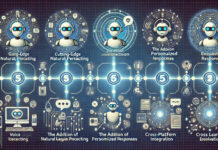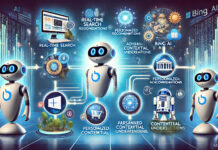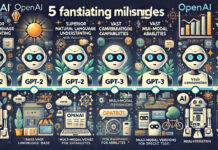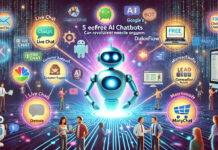Artificial Intelligence (AI) is no longer a distant concept confined to the realm of science fiction; it has become an integral part of our everyday existence, influencing countless aspects of how we live and work. The AI impact in daily life is vast and growing, touching everything from how we manage our health to how we interact with our urban environments. Whether it’s the way AI is revolutionizing healthcare, enhancing personalized experiences, or transforming urban development, the presence of AI is undeniable and pervasive.
As we delve deeper into the AI impact in daily life, we begin to see how this powerful technology is reshaping industries across the globe, driving efficiency, innovation, and unprecedented change. In this article, we will explore five transformative effects that AI is having on both industries and our everyday routines, illustrating why AI is not just a tool of the future but a pivotal force in our rapidly evolving world today. The AI impact in daily life is not just a trend—it’s a fundamental shift that is redefining our reality.
1. AI Impact in Daily Life: Healthcare Transformation
AI is dramatically changing the healthcare sector by enhancing the accuracy and efficiency of diagnostics, personalizing treatments, and optimizing hospital operations. AI-powered tools can analyze vast amounts of medical data, including patient histories, imaging, and genetic information, to detect diseases early and predict patient outcomes more reliably.
For instance, AI algorithms are being used to interpret medical images with a precision that sometimes surpasses human doctors. These tools can identify patterns in X-rays, MRIs, and CT scans that may indicate conditions like cancer or neurological disorders. This early detection is crucial for successful treatment and can significantly improve patient survival rates.
Moreover, AI aids in personalizing medicine by analyzing a patient’s genetic makeup and predicting how they will respond to different treatments. This allows doctors to tailor treatments to individual patients, increasing the chances of effectiveness and reducing the risk of adverse reactions. AI also optimizes hospital operations by streamlining processes such as patient scheduling, inventory management, and even predicting patient admission rates to ensure resources are adequately allocated.
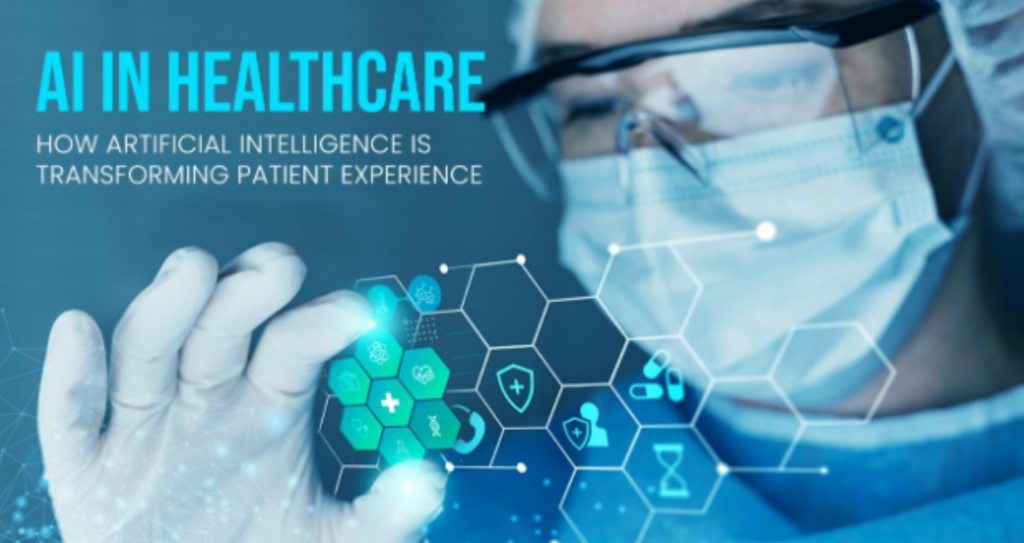
2. Financial Services Innovation
In the financial sector, AI is driving innovation by automating complex processes, enhancing risk management, and offering personalized banking services. AI’s ability to analyze large datasets at high speeds makes it an invaluable tool for tasks like automated trading and fraud detection.
High-frequency trading, for example, relies heavily on AI algorithms that can execute trades in microseconds, reacting to market changes faster than any human could. This speed and accuracy give financial institutions a significant advantage in the market. AI is also instrumental in fraud detection; by analyzing transaction patterns, AI systems can identify unusual activities that may indicate fraudulent behavior, helping to protect both banks and customers.
Personalized banking services are another area where AI excels. By analyzing customer data, AI can provide tailored financial advice, suggest products that fit a customer’s needs, and even predict when a customer might be considering leaving the bank, allowing for proactive engagement. These capabilities not only improve customer satisfaction but also help financial institutions maintain and grow their customer base.
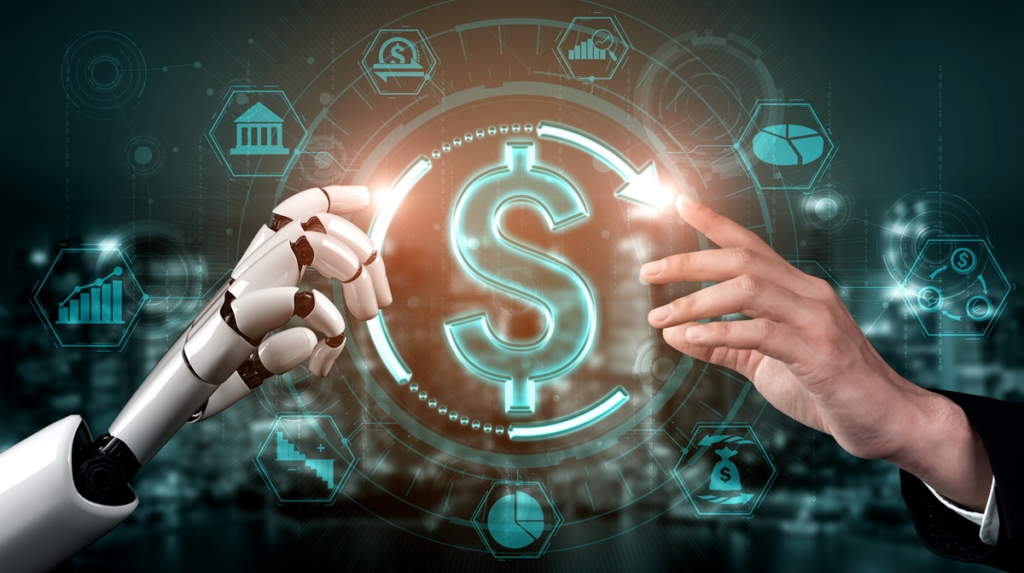
3. Manufacturing Advancements
Manufacturing is another industry where AI is making significant strides, particularly in optimizing production processes, reducing waste, and predicting maintenance needs. AI-driven automation in manufacturing plants helps streamline production lines, ensuring that operations run smoothly and efficiently.
Predictive maintenance is a game-changer in manufacturing. AI systems can monitor equipment in real-time, analyzing data to predict when a machine is likely to fail. This allows companies to perform maintenance before a breakdown occurs, reducing downtime and avoiding costly interruptions in production. AI also optimizes supply chain management by forecasting demand and adjusting production schedules accordingly, which minimizes overproduction and reduces inventory costs.
In addition to these operational improvements, AI is fostering innovation in product design and development. By simulating different design scenarios, AI can help engineers create better products faster and with fewer resources, pushing the boundaries of what’s possible in manufacturing.
4. Retail and Consumer Experience
In the retail industry, AI is transforming how businesses interact with customers and manage their operations. AI-driven technologies like chatbots, personalized marketing, and demand forecasting are enhancing the customer experience and driving efficiency in retail management.
AI-powered chatbots provide instant customer service, handling inquiries and resolving issues 24/7 without the need for human intervention. This not only improves customer satisfaction but also reduces the workload on human employees, allowing them to focus on more complex tasks.
Personalization is another significant benefit of AI in retail. By analyzing customers’ past purchases, browsing behavior, and preferences, AI can deliver personalized recommendations and marketing messages that resonate with individual shoppers. This targeted approach increases the likelihood of sales and fosters customer loyalty.
Demand forecasting is crucial for inventory management, and AI excels in this area by analyzing trends and predicting future sales. This helps retailers maintain optimal inventory levels, reduce waste, and ensure that popular items are always in stock.
5. Smart Cities and Urban Development
AI is playing a crucial role in the development of smart cities, where technology is used to improve urban living through better infrastructure, enhanced public safety, and optimized resource management. AI’s ability to analyze data and predict outcomes is essential for managing the complexities of modern cities.
Traffic management is one area where AI has a significant impact. AI systems can analyze traffic patterns in real-time, optimizing traffic light timings, and suggesting alternative routes to reduce congestion. This not only improves commute times but also reduces pollution by minimizing the amount of time vehicles spend idling in traffic.
Public safety is another area where AI contributes to smart cities. AI-powered surveillance systems can detect unusual behavior or potential threats, allowing authorities to respond quickly to prevent incidents. Additionally, AI is used in disaster management, where it predicts natural disasters like floods or earthquakes and helps coordinate emergency responses, potentially saving lives.
Resource management in smart cities also benefits from AI. Smart grids, powered by AI, optimize the distribution of electricity, balancing supply and demand to reduce energy consumption. AI also plays a role in water management, waste management, and even air quality monitoring, ensuring that cities run efficiently and sustainably.

Conclusion
AI’s global impact is undeniable, with transformative effects across various industries and aspects of daily life. From revolutionizing healthcare and financial services to advancing manufacturing, retail, and urban development, AI is at the forefront of innovation. As we continue to integrate AI into more areas of our lives, its potential to improve efficiency, enhance experiences, and solve complex challenges will only grow.
By embracing AI, industries can not only stay competitive but also lead the way in creating a more connected, efficient, and sustainable future. As we move forward, it’s essential to balance the technological advancements brought by AI with considerations of ethics, equity, and the human element, ensuring that this powerful tool benefits everyone.
For more insights into the transformative power of AI across industries, explore our series on AI technologies and their impact on the world.
FAQ
1. How does AI contribute to healthcare?
- AI improves healthcare by enhancing diagnostics, personalizing treatments, and optimizing hospital operations.
2. What role does AI play in financial services?
- AI automates trading, enhances fraud detection, and personalizes banking services.
3. How is AI transforming manufacturing?
- AI optimizes production processes, predicts maintenance needs, and fosters innovation in product design.
4. What are the benefits of AI in retail?
- AI enhances customer service through chatbots, personalizes shopping experiences, and improves demand forecasting.
5. How does AI impact smart cities?
- AI improves traffic management, enhances public safety, and optimizes resource management in urban areas.
